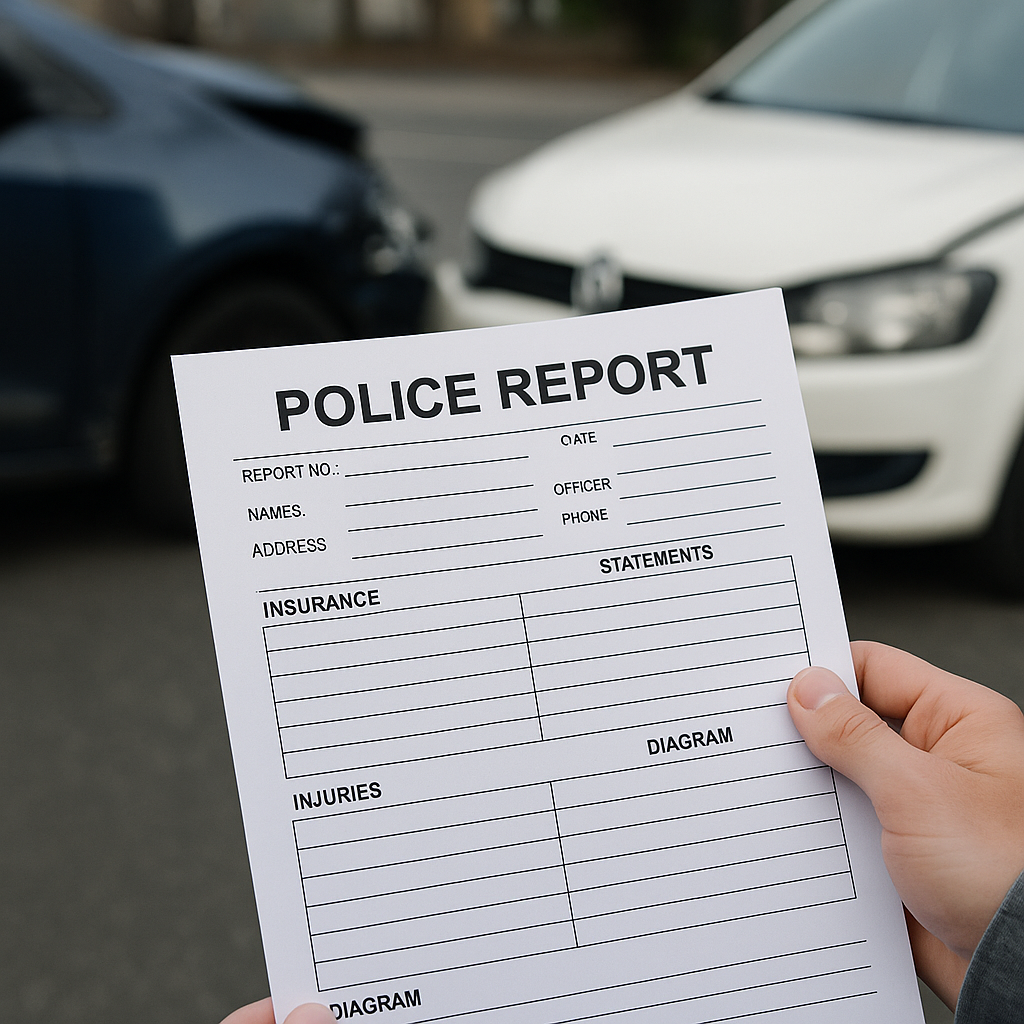What happens after the crash isn’t always what you expect.
Here’s something that might surprise you: In 2023, Georgia reported over 385,000 motor vehicle crashes, resulting in more than 1,800 fatalities and 147,000 injuries, according to the Georgia Department of Transportation. That’s over 1,000 crashes per day.
And when the dust settles, whether it’s on I-285 in Atlanta or a quiet street in Macon, one document often determines what happens next: the police report.
A police report after a car accident isn’t just paperwork. It can directly affect how much compensation you receive, how quickly your case moves, and even whether your claim is accepted or denied. If you’ve been in a crash, knowing what’s in that report and how it’s used can change everything.
Contents of Report
A Georgia crash report usually includes:
- Names, contact info, and insurance details of everyone involved
- Statements from drivers, passengers, and witnesses
- Description of injuries and vehicle damage
- Time, location, and road conditions
- A diagram of the crash scene
- Any citations issued
- The responding officer’s opinion on what caused the accident
These details are recorded on Georgia’s Uniform Motor Vehicle Accident Report form and are available through state and local authorities.
Obtaining Report
You can request your crash report in Georgia using these methods:
- Online: Visit BuyCrash.com and enter your report number or driver details
- In person or by mail: Contact the local police department or Georgia State Patrol post that responded
- Through a lawyer: At The Roth Firm, we can obtain it for you and explain how it affects your case
Most reports are available within 3 to 5 business days of the crash.
Influence on Claims
Police reports often influence every part of a car accident claim. Here’s how:
- Insurance adjusters review the report to determine liability
- Citations or officer opinions can lead to quicker settlement decisions
- Lawsuits may use portions of the report during the discovery phase
- Juries and insurers often treat these reports as credible, even when not formally entered into evidence
If the officer notes that the other driver was cited for reckless driving or DUI, that may significantly strengthen your case.
Disputing Errors
Police reports are not perfect. Officers may misinterpret who had the right of way, omit a witness, or incorrectly record damage.
You have the right to:
- Get a copy of the report
- Review it for errors
- Submit photos, dashcam footage, or witness statements
- File a supplemental statement through the agency
- Ask a lawyer to formally request corrections
Errors in a police report can influence how insurers view your claim, so correcting them early is important.
Georgia Laws You Should Know
Understanding the legal requirements around crash reporting and injury claims in Georgia is key if you’ve been involved in an accident. These rules affect when and how you must report a crash, access police documentation, and protect your right to pursue compensation.
You Must Report Certain Crashes
Under OCGA § 40-6-273, Georgia law requires you to report any motor vehicle accident that results in:
- Injury or death of any person
- Property damage exceeding $500
This report must be made immediately, by the quickest means of communication, to local law enforcement, county sheriff, or the Georgia State Patrol. Failing to do so can result in legal penalties and may weaken your insurance or injury claim.
Time Limit to File a Personal Injury Lawsuit
According to OCGA § 9-3-33, Georgia gives you two years from the date of the accident to file a personal injury lawsuit. This deadline applies to:
- Car accident injuries
- Wrongful death claims
- Other negligence-based personal injury cases
Failing to file within this two-year window typically bars you from seeking damages through the courts, regardless of how strong your case is. Some exceptions may apply in cases involving minors or delayed discovery of injury.
Additional Notes
For property damage only claims, you may have up to four years to file.
If the accident involved a government vehicle or public agency, special notice requirements and shorter timelines may apply.
Because legal deadlines can be strict and procedural errors costly, consulting with a lawyer early is always recommended. At The Roth Firm, we help clients stay ahead of every deadline and requirement tied to their case.
What You Should Do After a Crash
- Call 911, even for minor accidents
- Cooperate with police but don’t admit fault
- Get the officer’s name and badge number
- Ask for the accident report number
- Take photos of the vehicles and scene
- Get a copy of the report within a few days
- Talk to a lawyer if you’ve been injured
How The Roth Firm Can Help
Police reports are important, but they’re not the whole story. At The Roth Firm, we use the report as a foundation. Then we build on it with your photos, witnesses, and medical evidence. If there’s something wrong in the report, we’ll work to correct it.
A small detail in a police report can affect your entire claim. Contact The Roth Firm today for a free consultation. We’ll review your report, explain your options, and help you move forward with confidence.

